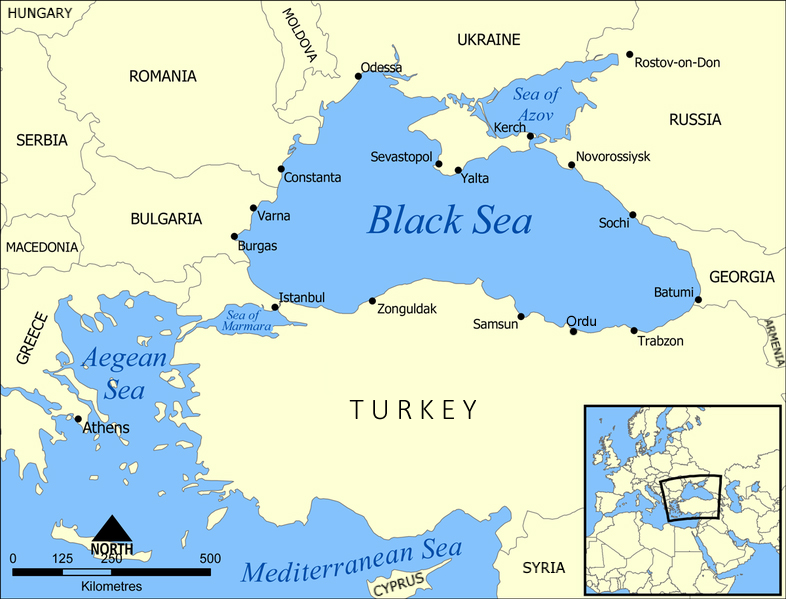The NATO Shipping Centre has warned of a high risk of collateral damage on civilian shipping in the northwestern part of the Black Sea. The organisation cautions against mine danger areas, ships being hit as a result of acts of war and electronic interference and cyber attacks.
According to the NATO Shipping Centre (NSC), which is the link between NATO and the merchant shipping community, there are several open source reports of civilian ships being hit directly or indirectly as a result of the acts of war in the north western Black Sea within Ukrainian territorial waters and adjacent international waters. NSC asks civilian shipping to exercise caution, be on high alert in the area and that ships stay away from areas where military operations are taking place.
Likewise, shipping has to stay in close contact with national and local maritime authorities. Shipping should thoroughly document any incidents and report these via their respective national channels and to the local maritime authorities.
Also read: Some of the consequences of Russia’s attack on Ukraine for shipping
A large number of navigation warnings have been issued, covering a number of warning areas, including mine danger areas. Shipping is encouraged to stay well informed about these and keep well clear of the areas as well as warships and military craft. It should always be taken into account that the situation may develop further during a voyage.
Electronic interference
The risk of GPS interference issues or jamming, AIS spoofing, other electronic interference and cyber attacks in the area are still considered very high, the NSC adds. Harassment and diversion of shipping in the area is also considered highly likely.
The NSC advises that vessels ensure the automatic identification system (AIS) is always transmitting (except when the master believes that continuing to operate AIS might compromise the safety or security of the ship or when a security incident is imminent), consistent with provisions of the International Convention for the Safety of Life at Sea (SOLAS) and monitor VHF Channel 16.
Shipping is strongly recommended to follow the instructions of the international and national maritime authorities. Journeys to the Black Sea should be carefully considered and planned based on an assessment of the escalating security situation.
Picture by Norman Einstein, Wikimedia.
Also read: Shell, Equinor and bp withdraw from Russian partnerships worth billions








